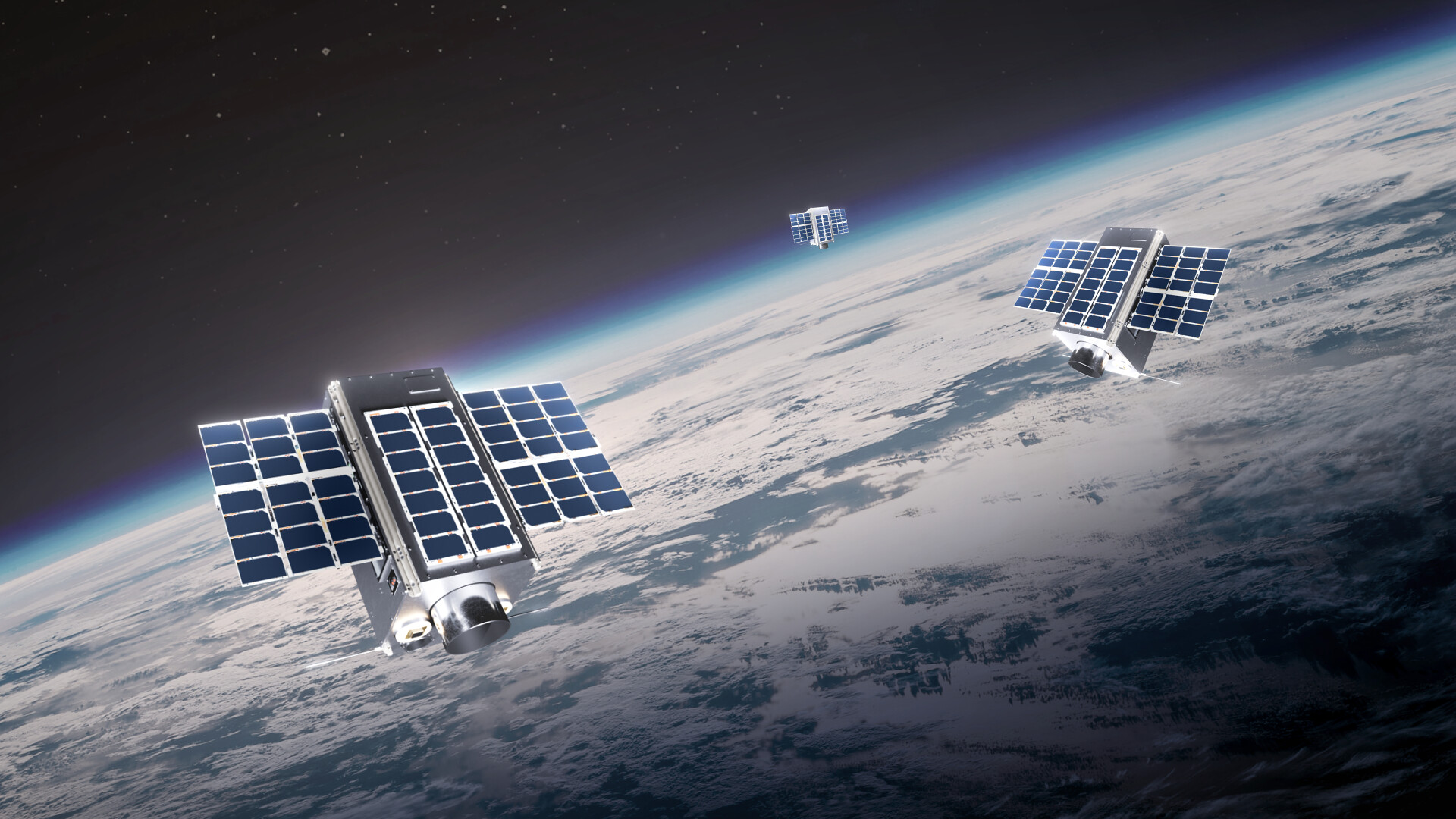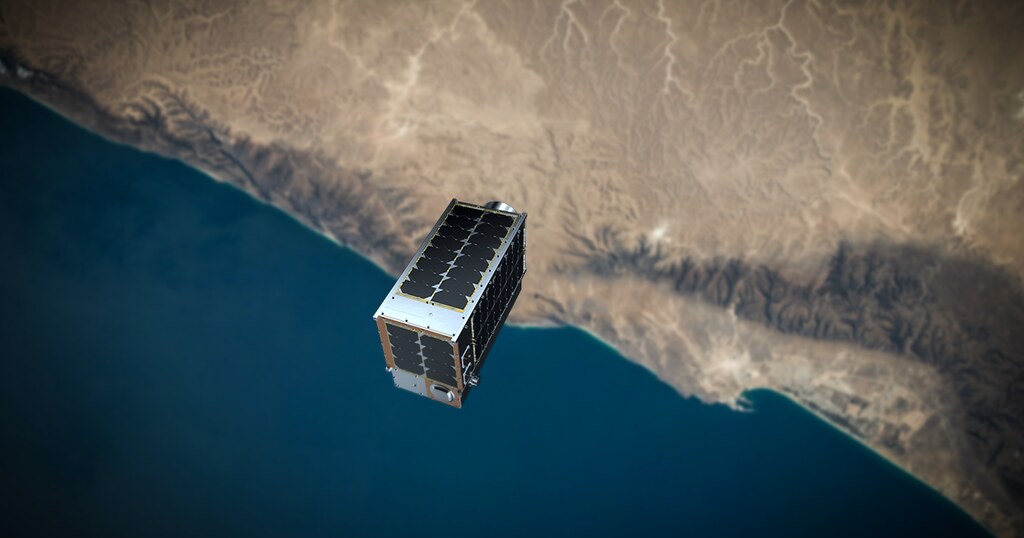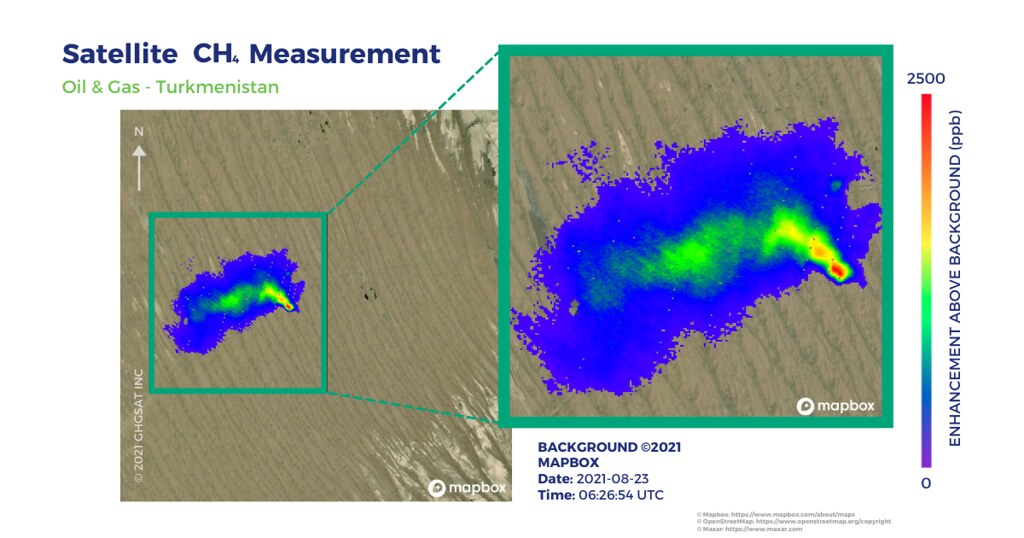A new partnership uses high-resolution satellite data to support progress towards global methane targets.

The UK Space Agency has announced a significant collaboration with the United Nations Environment Programme’s International Methane Emissions Observatory (IMEO), reinforcing the UK’s leadership in tackling one of the most urgent climate challenges: methane emissions.
Through this initiative, the UK Space Agency provides IMEO and UK Government users with high-resolution methane data, utilising commercial satellite company GHGSat’s advanced satellite monitoring capabilities and data analytics.
These satellites provide improved accuracy and granularity compared to traditional datasets.
By integrating this data into IMEO’s global monitoring systems, the partnership strengthens international capacity to detect, validate, and respond to emissions across different sectors and regions.
Beth Greenaway, Head of Earth Observation at the UK Space Agency, said:
“Harnessing advanced satellite technologies is vital to driving action on climate change and in particular the UK’s commitment to reducing methane emissions by 2030 and achieving the aims of the recently published UK’s Methane action plan.
“This agreement
leverages commercial satellite data with thecutting edge data analytics capability in the UK. It is a win-win for IMEO and the UK Government’s efforts to turn Earth observation data into real tools for Earth action. We are also excited to see this initiative build on the Methane Common Practices the UK championed during its chairing of the global Committee on Earth Observation satellites (CEOS).”
Methane is a potent greenhouse gas, responsible for around 30% of global warming since pre-industrial times.
Reducing methane emissions is widely recognised as one of the fastest and most cost-effective ways to slow climate change.
This new partnership supports global efforts to meet commitments under the Global Methane Pledge, which aims to cut methane emissions by 30% by 2030, a key milestone as nations prepare to report progress at COP30.

The announcement coincides with COP30, where the United Nations has released its latest Global Methane Assessment which suggests more needs to be done to meet the aims of the pledge.
This alignment underscores the urgency of coordinated international action and the UK’s commitment to delivering measurable progress on methane reduction as set out in the updated UK methane action plan.
Meghan Demeter, Programme Management Officer, United Nations Environment Programme’s International Methane Emissions Observatory said:
“We’re pleased to partner with the UK Space Agency as we work to put high-quality, actionable methane data in the hands of those who can reduce emissions.
“With UK Space Agency support and with access to high-resolution satellite observations – from GHGSat and more than a dozen other satellites – IMEO is delivering the insights needed to accelerate and verify action on the ground. As we expand our monitoring into new sectors, including coal and steel, this collaboration is strengthening global capacity to detect, understand and reduce methane emissions.”
The collaboration is already delivering tangible benefits. Data is being used to validate emission mitigation activities catalysed by IMEO and track long-term trends in methane emissions in several countries.
GHGSat’s UK Managing Director Dan Wicks said:
“Partnering with the UK Space Agency to integrate GHGSat’s satellite data is a powerful example of how innovation from space can help tackle one of the world’s most urgent challenges.
“Together we’re turning cutting-edge technology into meaningful action, supporting the UK’s global leadership in methane reduction and proving that international collaboration can deliver real impact for our planet.”

Methane reduction is one of the most impactful steps we can take to slow global warming in the near term. Many existing inventories rely on estimates rather than direct measurements, creating uncertainty that hampers effective action.
GHGSat’s high-resolution imagery provides a more complete and transparent picture, supporting evidence-based policy and international cooperation.
By championing innovation in methane monitoring, the UK is demonstrating global leadership in climate action and setting a new standard for transparency and accountability.
Leave a comment